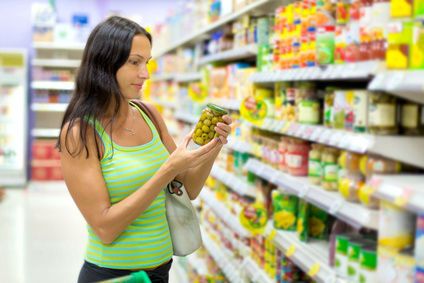
In a video revealing some scary facts about products labeled as organic, Mark Kastel, the Senior Farm Policy Analyst at the Cornucopia Institute, states that over 100 synthetic substances, as well as non-organic additives, are currently approved for use in organic foods.
The Cornucopia Institute is, as described by Kastel, an “organic industry watchdog” based in Cornucopia, Wisconsin. Upon a review by Cornucopia’s staff of the ingredients allowed in organic products since the USDA took over regulations in 2002, Kastel states that they found:
“A corporate and governmental conspiracy to allow almost any chemical petitioned by agribusinesses in organic food, regardless of the fact that Congress mandated review of all such substances to make sure that they will not damage the environment or human health.”
The following are some examples of non-organic ingredients allowed to enter organic foods:
- Synthetic, genetically modified DHA and ARA oils collected from algae and soy fungus, grown in a medium of GMO corn.
- Synthetic ingredients such as glucose syrup solids and sugar alcohol mannitol, along with others that are “undisclosed.”
- Synthetic solvents such as isopropyl alcohol.
- Other ingredients so processed that they can no longer be called natural.
According to current USDA laws, all synthetic ingredients that are used in organics must be reevaluated every five years. However, since the purpose of organics should be to stay as far away from synthetic ingredients as possible, it is puzzling why they are allowed at all.
Kastel answers this question by describing a “cozy relationship with agribusiness” enjoyed by many of our lawmakers. To illustrate his point, one of the examples he cites is the allowance of carrageenan, a seaweed derivative, which passed a review by the National Organics Standards Board (NOSB) in 1995.
Regarding this review, Kastel says, “This technical review hardly mentions some potential serious health impacts from degraded carrageenan, failing to cite any of the research to inform the board that historically, as much as 25 percent of carrageenan on the market was categorized as degraded. Current research shows that all types of carrageenan can degrade in the body and can create serious known health impacts.”
He continues, “A number of peer-reviewed published papers that should have been cited indicate that degraded carrageenan causes inflammation and can cause serious intestinal abnormalities. Degraded carrageenan is also considered a possible carcinogen, and it’s in organic foods!”
 In an effort to end what Kastel calls an “organic watergate,” the Cornucopia Institute is circulating a proxy letter for people to sign, to be sent to USDA officials to urge them to re-review all of the synthetic ingredients used in organics. Kastel emphasizes that, “The integrity of the organic label is worth fighting for.”
In an effort to end what Kastel calls an “organic watergate,” the Cornucopia Institute is circulating a proxy letter for people to sign, to be sent to USDA officials to urge them to re-review all of the synthetic ingredients used in organics. Kastel emphasizes that, “The integrity of the organic label is worth fighting for.”
The fact that over 100 non-organic ingredients can be found in organic foods is staggering, and paints a very clear picture that processed food is still processed food, even if it carries an organic label. To enjoy optimal health, we’re much better off sticking to whole fruits, vegetables, nuts, legumes and meats, and skipping the packaged stuff altogether.
-The Alternative Daily
Sources:
http://www.youtube.com/watch?v=rNfU9M9PmZU
http://articles.mercola.com/sites/articles/archive/2012/05/20/kastel-organic-foods.aspx
http://www.cornucopia.org
http://www.cornucopia.org/breaking-scandal-the-organic-watergate

